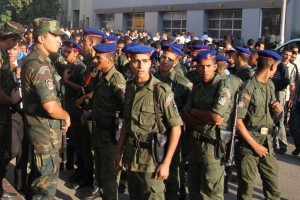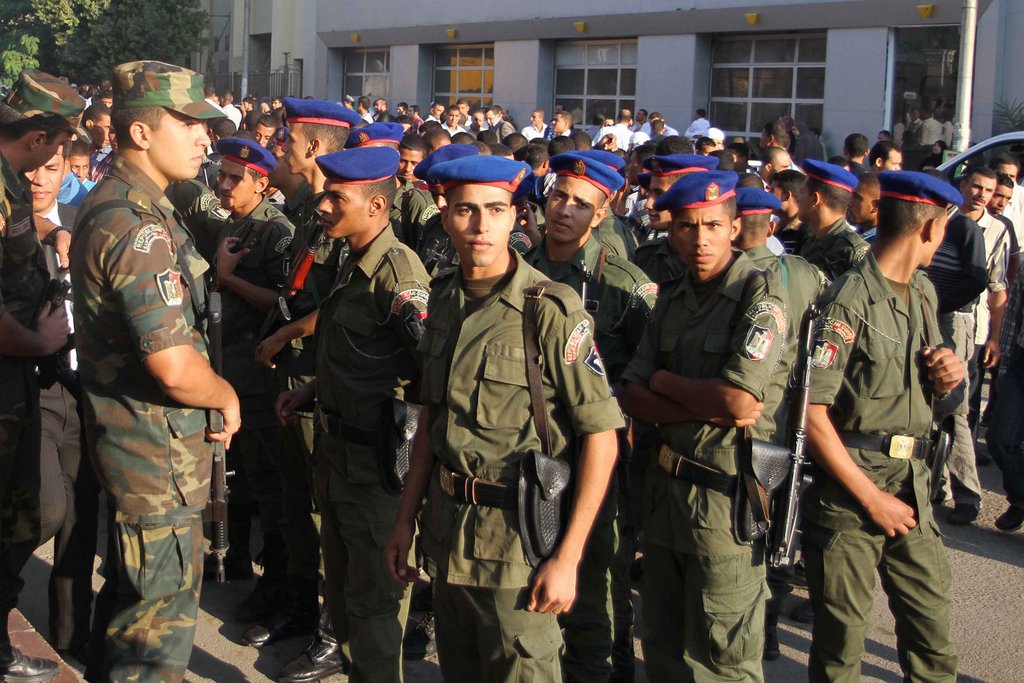By Ibrahim Al Masry

General Mamdouh Shahin, aid to the minister of defence, has refused to accept the candidacy of those running for parliament who had not performed military service.
He stated during a legislative committee held in the Shura Council that: “We have already sent our approval of the nation’s election laws to the Ministry of Justice. We do not wish to rehash the same arguments that took place during the Mubarak administration in 2010, when they made the same request.
“The National Democratic Party asked in 2010 that we pardon those who did not serve in the Armed Forces and allow them to run in parliamentary elections. We refused to agree to these requests, because military service is a sacred obligation and represents defence of the nation. It is important to remember that military service is mandatory.
He added that Egypt’s Supreme Constitutional Court and Administrative Court ruled that military service was obligatory and necessary to uphold the honour of the constitution. He said individuals who had not served in the military could not enjoy a good reputation, or secure the confidence of the state.
He added: “Those who defer from military service should not be allowed to receive a public mandate, seeing as service is intertwined with national security and protecting the interests of the nation. Candidates should be proud of their military service and time spent pursuing and apprehending smugglers.”
Shahin pointed to a law passed jointly by the judicial authority and diplomatic corps, which prevents all those convicted of dishonourable crimes from holding public office, even if they are later considered to have been rehabilitated. According to Shahin, this clause should apply to those seeking to run in the upcoming parliamentary elections for the new House of Representatives.
Those who take part in military service allow themselves to be at the disposal of the armed forces for a period of nine years.
The law states that the police have the right to arrest those who do not serve, and that these individuals could possibly receive a two year prison sentence, in addition to paying a fine between EGP 2,000 and EGP 5,000. This law however, has rarely been enforced, with most violators simply paying a fine.
A number of parliamentarians responded to Shahin’s statements, saying that exceptions should be made for those who had previously been political prisoners.
Shahin suggested adding a clause saying, “or having been exempt” to Egypt’s election law, so that the text would read that all those eligible to run for office would include “those who have served in the armed forces or were exempted from doing so.”
“All cases of exemption should be made in the interest of public service, for security reasons, or in special circumstances where the Ministry of Justice has made a specific ruling. The question still remains as to whether or not those who have deferred from service are fit to represent the nation. Deferment has a large negative impact on the armed forces recruitment efforts.”
Shahin’s suggestion came after verbal altercations broke out within the legislative committee after some members demanded that anyone who had not served in the armed forces as a result of any prior status of having been a political prisoner, should now be allowed to run in elections.
The altercations broke after after Rami Lakah said: “We will not accept that there should exist an everlasting punishment for political prisoners who could not serve in the armed forces for specific reasons. We will not accept the systematic persecution of Islamists.”
Shahin responded saying: “I reject the notion that what I have suggested amounts to persecution of Islamists.
“Deferment of military service is a dishonourable crime; however we must be able to distinguish between different cases of deferment and the reasons behind them.”
Muhammad Tusun, president of the legislative committee within the Shura Council said: “I have with me a correspondence from the Ministry of Defence reaffirming that deferment of service is not a dishonourable crime.”
Shahin responded: “That is incorrect”, to which Tusun responded: “If you like I will give you a copy.”
Nasr Farid Wasil, previous grand mufti weighed in: “Military service is a duty, sacred obligation, and debt to be paid, while running for parliament is a choice.”



